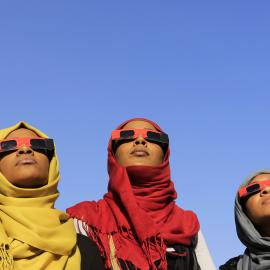To the Editor:
John Githongo's article "Fear and Loathing in Nairobi" (July/August 2010) failed to mention one institution that is keeping Kenya's elite in check: the International Criminal Court (ICC), which is trying to bring justice to millions of Kenyans affected by the postelection violence of 2007-8.
Unfortunately, Kenya's new constitution, approved by referendum in August, faces many obstacles to implementation -- not least vested interests -- and so politicians who face potential prosecution by the ICC still have the resources to stir their tribal bases and, through the Kenyan legislature, make it difficult for them and other suspects to be extradited to The Hague for trial.
The ICC needs to explain to Kenyans that suspects handed over to the court are still just that -- suspects. And it needs to let the government and the people of Kenya know that the extradited suspects are innocent until proven guilty. The political elite needs some assurance that there is a possibility of some suspects' returning.
By passing "not guilty" judgments for some of the suspects, a high likelihood if the best global international law firms are hired, the ICC would prove to skeptical and fearful leaders across the continent that it is not an imperial body or a sneaky backdoor colonial agent. The innocent will have a fair hearing in its halls. This will counter arguments against the ICC by elites in Sudan, where over 300,000 souls still cry out for justice in Darfur.
The vibrant Kenyan media will be an important ally for the ICC in spreading this message across the country and beyond. Kenyan youth urgently need to understand and appreciate the value of the rule of law. For a country with severe corruption issues, this is a perfect opportunity to instill an enduring respect for the rule of law and discourage those who might otherwise engage in corrupt practices in the future.
ALBERT MURIUKI
Fellow, Columbia Law School; Advocate, High Court of Kenya; and former Presidency Intern, ICC
